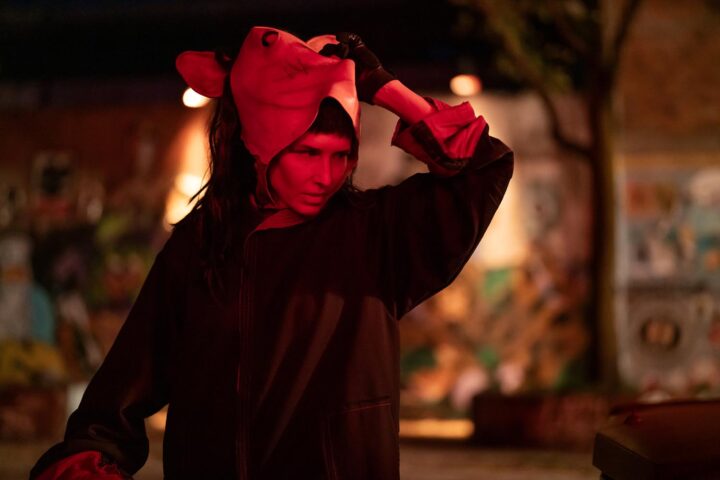Less a last will and testament than a mischievously mutual final troll, Errol Morris’s documentary The Pigeon Tunnel sees both its director and its subject, the late spy turned novelist John le Carré (né David Cornwell), engage in a circuitous dialogue, shot over four days near the end of 2019, that’s as charming and playful as it is oblique and ominous.
Contradictions abound, beginning with the film’s title visual, which is taken from le Carré’s 2016 memoir of the same name. It refers to a hotel in the Mediterranean that a young le Carré would visit with his father Ronnie, a career swindler. Pigeons were bred on the roof, and at certain points of the day the birds were forced to fly through a tunnel where they would emerge over the ocean and be shot at from below by wealthy clientele. Those that survived, rather than break for freedom, would instead return to their cages on the roof.
It’s a potent metaphor for the traps we set for ourselves, the often self-deluding “bubbles” as le Carré himself says, within with each of us lives—prisons shaped by the examples of family, friends, and country. In le Carré’s case, the dual sway of his con-artist dad and a British Empire presenting itself, during the Cold War, with a deceptive, disingenuous brawn, effectively created an emotional split. He could play the role of the Oxford-educated, rigorously patriotic member of the upper classes, while simultaneously acting duplicitous to those in his path.
There were plenty of affairs in his love life, a subject he cheekily declines to discuss here, as well as betrayals of colleagues and confidants for which he doesn’t express remorse so much as a retrospective curiosity about his actions, as if he was a pathologist prematurely examining his own corpse. (Le Carré died a little over a year after this interview, aged 89, in December of 2020.) Yet plenty of his deceit was, of course, sanctioned by his own government.
And much of the rest of it was deemed acceptable under the terms of the creative license exercised over the course of a decades-long literary career, during which le Carré published such bestsellers as The Spy Who Came in from the Cold and Tinker Tailor Soldier Spy. That Cornwell’s pen name became more popularly known than his actual one further speaks to the life an alter ego can take on, perhaps usurping the original person in the process.
This is catnip for Morris, whose documentaries tend to revolve around shifty, complicated people, be they the relatively benign eccentrics of Gates of Heaven and Fast Cheap and Out of Control, or more sinister types like Robert S. McNamara (The Fog of War), Donald Rumsfeld (The Unknown Known), and Steve Bannon (American Dharma) with their society-upending lust for power. Le Carré is six of one, half a dozen of the other, a superb conversationalist both genial and cunning. He’ll give you everything you ask for and take just as much. To what purpose—be it for Queen and Country or his own amusement—is anyone’s guess.
Morris seems well aware of this and is no slouch himself in the art of interrogation. “I don’t know where to begin,” he says at the start of the interview with le Carré when it’s clear that he does. His faux-sheepish statement is intended to put his subject at ease, and thus make him better able to betray himself. The jousting and jesting then commences, and it’s consistently a delight watching the pair parry with each other, in serpentine rhythms complemented by Philip Glass and Paul Leonard-Morgan’s minimalist score.
All the willful obfuscation at times makes The Pigeon Tunnel feel slighter than Morris’s best work, and the slow-mo-tinged re-creations he employs in service to le Carré’s words are a bit too reliant on dodgy CGI. Yet the sense of getting nowhere in particular proves to be crucial toward grasping le Carré in all his impish glory. “I’m an artist,” he says at the film’s conclusion, the unspoken modifier (“con”) only evident in the smirk on his face and the glint in his eye.
Since 2001, we've brought you uncompromising, candid takes on the world of film, music, television, video games, theater, and more. Independently owned and operated publications like Slant have been hit hard in recent years, but we’re committed to keeping our content free and accessible—meaning no paywalls or fees.
If you like what we do, please consider subscribing to our Patreon or making a donation.




